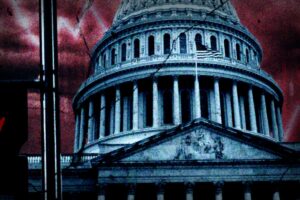On Friday night, a district court judge in New York made a pivotal ruling. Judge Colleen McMahon from the U.S. District Court in Southern New York enacted a preliminary injunction that puts a stop to the sweeping cancellation of National Endowment for the Humanities (NEH) grants aimed at members of the Authors Guild, citing violations of their First Amendment rights.
With this decision, Judge McMahon has halted the cancellation process for grants that had previously been awarded to Authors Guild members. She emphasized that no funds related to these grants should be committed elsewhere until the details of the case are thoroughly examined in court.
The judge pointed out that the action taken by the defendants to terminate these grants seemed influenced by the perceived viewpoints of recipients, essentially trying to stifle certain ideas. This was particularly clear through the references in the termination notices to executive orders suggesting the need to fight against what was labeled ‘Radical Indoctrination’ and ‘DEI Programs’ with an added emphasis on ‘Biological Truth.’
One notable grant involved a professor’s research on the resurgence of the Ku Klux Klan in the 1970s and 1980s, a project categorized under diversity, equity, and inclusion (DEI) efforts, raising alarms with the government. McMahon also noted that various other historical projects were canceled partly due to their association with DEI topics.
Judge McMahon made it clear that while the administration has the choice to highlight certain NEH funding priorities—especially with the important 250th anniversary of America approaching—it cannot do so in a way that undermines First Amendment rights. “No agency discretion allows for violations of the First Amendment or gives the government authority to censor history,” she stated.
Interestingly, the judge noted that some grant recipients were denied their funding simply because they had received it during the Biden Administration.
The Authors Guild launched a class action lawsuit back in May against both the NEH and the Department of Government Efficiency, arguing that the grant terminations were unjustified and that the funds had already been allocated by Congress.
According to the lawsuit, the halting of the grant program by DOGE effectively brought the work of humanities councils to a “screeching halt” earlier this spring.
McMahon’s injunction, she reiterated, is meant to maintain the current situation until it can be determined if the plaintiffs should receive any relief. It’s designed to do nothing beyond that, denoting a careful, measured approach.
However, her rulings weren’t as favorable for all plaintiffs; she rejected a temporary injunction request from the American Council of Learned Societies and dismissed several of their legal claims. This council included prominent associations like the American Historical Association and the Modern Language Association.


















